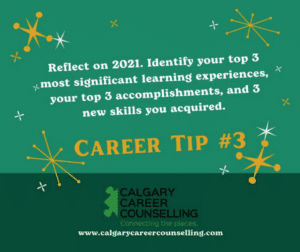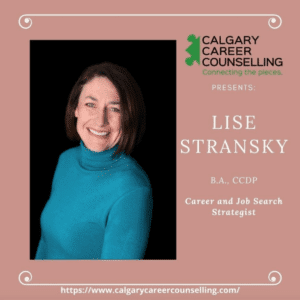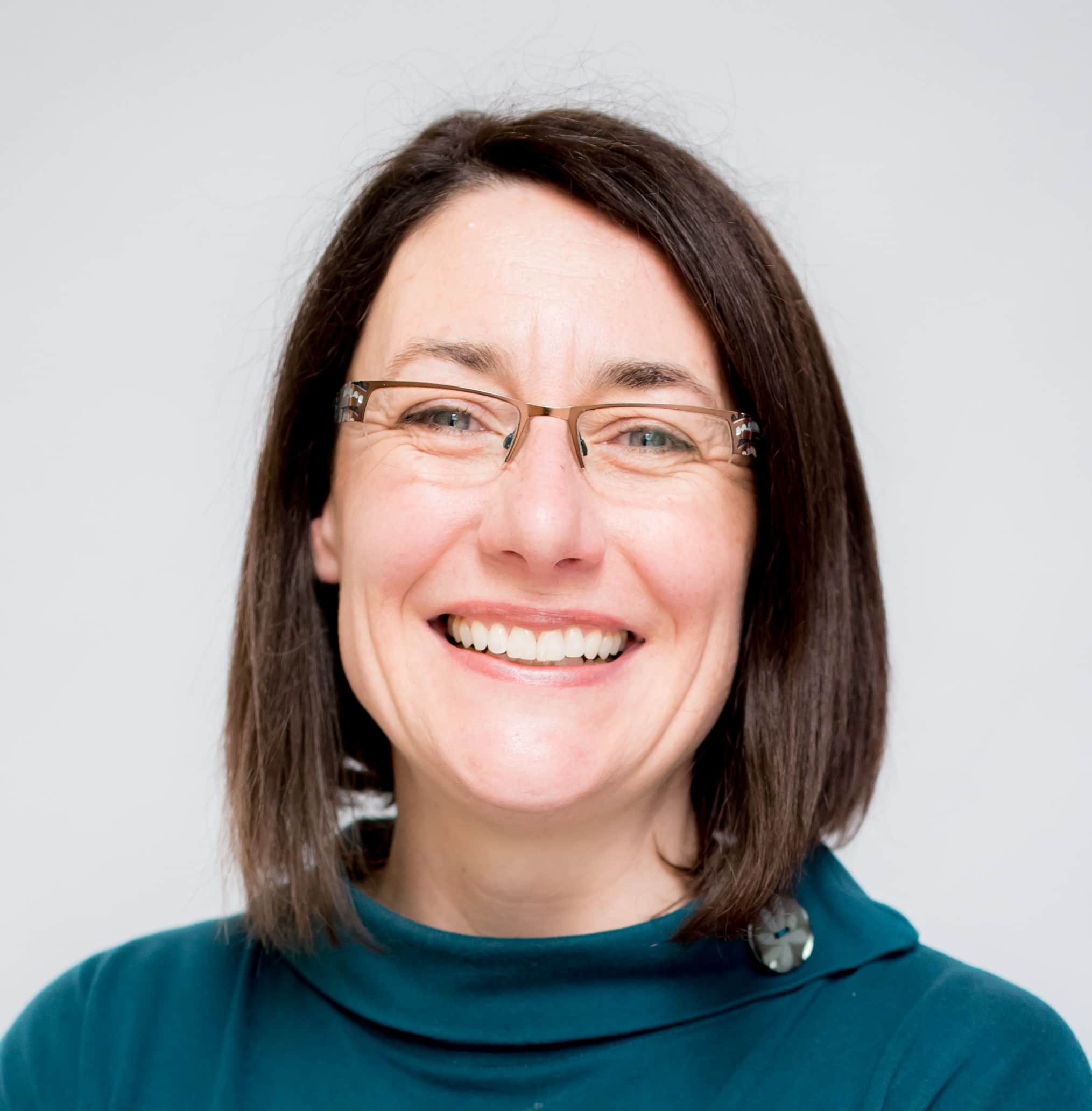As every year draws to a close, and a new one begins, many of us take time to reflect on our lives. One important aspect of our fulfillment or dissatisfaction is our careers. When I first chose to specialize in career psychology back in 1998, I felt that it was an often-overlooked area of the counselling psychology field. Yet one’s career is such a key component of our overall well-being and needs regular attention.
I chose to interview an expert in this area whom I collaborate with and trust immensely – Lise Stransky. Lise began working as a career development practitioner in 2004, helping people figure out their job and career paths. She currently works as the Career and Job Search Strategist for Calgary Career Counselling. Lise helps people navigate job search, including honing their interview skills, LinkedIn profiles, and resumes/cover letters.
This blog is a summary of some of Lise’s tips and tools for taking stock of your career health, preparing for career curveballs, and becoming an activist for your own career.
What is career health?
Lise explains career health as an alignment between work that you do, and the values and interests that you have. Career health requires being active in managing your own career. We all have two jobs: one is the work we’re paid to do, and the other is managing “Me Inc.”, which is our own career health. This involves making sure our work is meaningful to us and that we’re enjoying what we’re doing (versus feeling unfulfilled or just going through the motions or the “grind”).
To assess your career health over the past year, ask yourself what the year looked like? What have you learned and accomplished? What do you want to do next? According to Lise Stransky, the most meaningful information comes from examining our career in reverse. This is how you can really understand it. Are your values, skills, and interests aligned with what you’re doing right now?
“To assess your career health over the past year, ask yourself what the year looked like?
What have you learned and accomplished? What do you want to do next?”
It has been a challenging period of time for some people during the pandemic, with loss of jobs or businesses closing. What advice do you have for people to prepare for these types of career transitions?
Change and transition is hard, and change is a constant in life. It’s a process involving ups and downs. Sometimes change is our own decision, while other times it’s forced upon us. The more we can be active and proactive in our career health, the more we can be resilient and mitigate the changes that come. Lise reminds us to “think of yourself as a group of skills and things you like to do, and the work will find you versus being limited to one job title.”
Lise Stransky’s advice is to be a “career activist,” being up-to-date on what skills are needed and what trends are happening in the world of work (e.g., you need to have the ability to learn and drive your own learning, as well as adaptability, resilience, communication and teamwork skills– both in person and in a virtual environment).
The pandemic has also seen an increase in opportunity in certain industries/sectors, including tech, machine learning, and supply chain. While many businesses have closed, many others have opened, as there are opportunities for starting our own businesses.
“Think of yourself as a group of skills and things you like to do, and the work
will find you versus being limited to one job title.”
Lise Stransky
Lise mentions how learning can happen in formal education as well as informally through “micro-learning”. There are all kinds of learning opportunities these days online, and it’s important to understand your own learning style and choose learning that fits your needs. For example, do you learn best by watching? Listening? Doing?

What do you see as the biggest gaps or blind spots people have when it comes to managing their careers?
Lise shares these gaps: Many don’t recognize that career isn’t just the work you are paid to do. Career is made up of all sorts of roles, including unpaid work, volunteering, life roles, education and more. This helps career activists to realize that there are many ways to gain skills. You can’t be stagnant; if you are, you are not developing skills. We need to be on top of what the skills of the future are. Also, accessing allies – not just building a network but maintaining the network you already have. Making sure you are an ally to your network as well.
Also, Lise emphasizes how we need to be aware of and careful of our presence on social media and the internet. That is your brand when potential employers search your name. In addition, be careful of having outdated email accounts, like Hotmail, which can easily be filtered into junk boxes of employers.
The month of December and the holiday season is a busy one for many. How can career planning and building connections be built into this busy timeframe?
Lise says to talk to everybody! People at the dog park, the person in the grocery line, etc. Show genuine curiosity in others. These casual conversations may be the beginning of key relationships along your career paths. The more chance encounters you create, the greater impact that “planned happenstance” can have on your career (planned happenstance is a theory introduced in 1999 by Mitchell, Levin and Krumboltz, whom I had the chance to meet at Stanford University in 2000). Planned happenstance is about “constructing unexpected career opportunities” and purports we can “plan,” be prepared for, and even “construct” or generate “chance” career events in our lives.
“I wish everyone could have meaningful work that was not limited by a job title or job description. That we were recognized, valued and identified by our skills, not just our title.”
Lise Stransky
What is one book and one podcast you’d recommend to help people learn more about their career health?
The Future Of by Todd Hirsch, the Chief Economist for ATB. Looks at what things are impacting the economy and world of work.
The Next Normal by Lisa Taylor of the Challenge Factory. How has the pandemic changed how we work? What are the latest trends?
The book Lise recommends is called ‘What Next’ by Barbara Moses, one of her favorite go-tos for practical recommendations to make sure you’re being an activist versus a passivist when it comes to your career.
Also, check out Lise Stransky’s 12 days of career planning tips and the Calgary Career Counselling newsletter, where these tips will be shared in January.
If you could have one wish for a better world when it comes to work/life, and careers what would it be?
I wish everyone could have meaningful work that was not limited by a job title or job description. That we were recognized, valued and identify by our skills, not just our title. Job titles can keep us too narrow and not expand our careers.
* * *
About Lise Stransky:
 As a Certified Career Development Professional, Lise Stransky believes work should be meaningful. She also believes being proactive and managing your career health is as important as going to the dentist! This is the philosophy that has guided her work for the past 17 years.
As a Certified Career Development Professional, Lise Stransky believes work should be meaningful. She also believes being proactive and managing your career health is as important as going to the dentist! This is the philosophy that has guided her work for the past 17 years.
Before she became self-employed and a ‘portfolio careerist’, Lise worked for the Canadian Automobile Association, University of Calgary Career Services, the Certified General Accountants (now CPA Alberta), Calgary Board of Education and the University of Guelph. A graduate of the Career Development Practitioner Post Graduate Certificate program from Conestoga College, Lise also holds a BA in English from the University of Guelph and certificates in Personality Dimensions facilitation and Mental Health First Aid.




